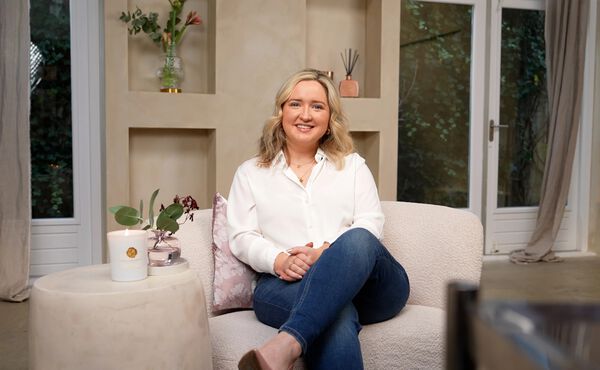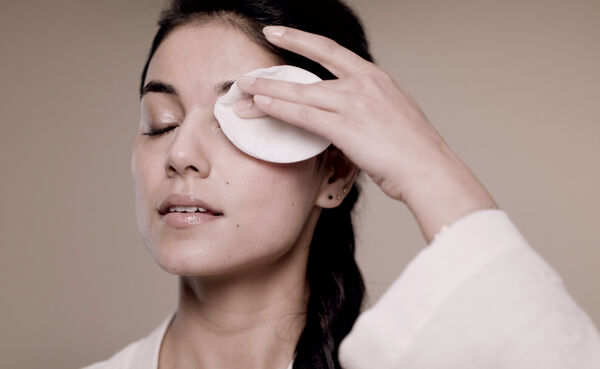Welcome to Skin Stories. In this series, we are spotlighting real-life women with real-life skin.
So many of us have insecurities around our complexion and, chances are, it doesn’t live up to the beauty industry’s unrealistic goals (shock). Isn’t it time we start talking about what real skin looks like? Today we are speaking to model, public speaker and age inclusivity advocate Mia Maugé. Here’s her skin story.
Can you describe your skin to us?
I could list everything, and I think the way that we are all programmed – these would all sound like negatives. I could tell you I’ve got open pores, wrinkles, dark spots. I could tell you I’m losing elasticity and plumpness. But this is my face, my face tells a story. It tells you that I’ve been around for a long time and that should be valued - it’s not in our society though, and that’s what I speak up for. We shouldn’t see the negatives in a mature person's face, we should see that they’ve got experience, wisdom and a lot to offer.
Over the years, how have you seen your skin evolve?
I probably noticed my first patch of melasma in my mid-to-late 40s when someone asked me if I had a birthmark (I hadn’t even noticed it) and over time, it's gradually multiplied. I actually like where it’s placed on my cheeks and I like the patterns, it doesn’t offend me to see it anymore. But there's a bit that I'm getting above my eyebrow, which I feel a bit differently about - because it makes my eyebrows like a bit of an odd shape. But, one day I might get used to that as well. Your skin is always changing, and I think there is an adjustment period, when things change, you focus on it but then over time, it just becomes part of you.
Have you always been into skincare?
No, in my twenties, I took my skin for granted, I used the same soap I used on my body on my face, I used baby oil to sunbathe – I didn’t take care of my skin at all. I don’t regret that to be honest with you. It might be why I have the melasma but – that just tells you I had a care-free twenties. Then came my battle with ageing. But now, my skincare routine is more about having a moment for myself. I check in with myself and practice gratitude with it. If I do nothing else, I’ll always take that time with my skincare.
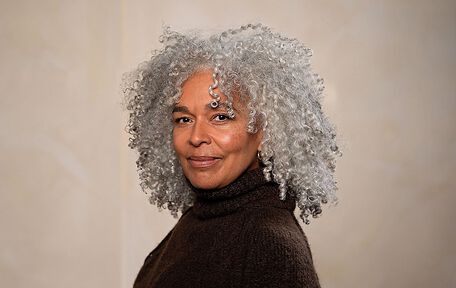
What is your attitude towards ageing?
When I was approaching 40, I immediately began to feel the effects of societal ageism (which then nurtured an inner ageism within myself). In the workplace, it feels like you are not being valued for your life or work experience – just because you look older. There’s a huge focus in society on youth. Lots of brands target that demographic and ignore more mature people, (who actually have the disposable income!) So, it's just about representation. I think everybody wants to be seen whatever age you are.
How do you feel about the representation of women in the media?
I feel mature women are either overlooked completely, or they are stereotyped. Somebody my age is often portrayed as the difficult mother-in-law, a cuddly grandma, or maybe a cool auntie if you’re lucky. But there's much more diversity in my age range and I don't see enough of that. More often than not, I am the only person that looks like me on set. Be that my age, my skin tone, my hair colour or texture. It does feel like tokenism, but I don’t mind that. Small steps make big change and it’s happening. I feel grateful to be a part of it. Even me telling my story here is change.
What role does social media play in your life?
It’s completely changed my life. It's given me a platform to connect with other like-minded people and amplify my voice around the issues of societal ageism. It's also given me a place to be visible as a mid-life woman and show people what that looks like and how I choose to live. I don’t have to rely on the media to give me that representation, I’m giving it to myself.
Have you always felt comfortable in your own skin?
As a young woman in the eighties, size zero was the beauty standard. I’m not a size zero, never have been. I have hips and thighs and I was made to feel like that was something that needed to be fixed. So, I spent decades chasing an unattainable body type. I had to face these insecurities when I became a model at the age of 54. I got approached and scouted on Instagram to be a model and my immediate response was - my go-to - ‘I can’t, I’m not a size zero, I don't fit the mould.’ But then I was like ‘but Mia, your representation far outweighs the importance of your insecurities’. So, I went for it.
One of the best jobs I got was for a lingerie campaign. I literally didn't sleep the night before, I was hugely nervous, but I knew the importance of seeing somebody who is over 50 owning their body and showing it to the world. I had to dance in my bra and knickers and to my surprise, I lost all inhibition. I became euphoric. That moment changed things for me. I’m not perfect, every now and then that little negative voice will emerge but, overall, I’ve learnt to silence it.
How has the experience of motherhood influenced your perspective on ageing?
When I was in the midst of my anti-ageing battle, I was looking in the mirror and said out loud something negative about it. My oldest daughter said to me, ‘mum - just think, in 10 years you’re going to look back at yourself now and think - what was I complaining about?’ I ‘looked beautiful’ - that was her words. She was 16 at the time, and I was like ok wise woman! Thanks for that one. But it stayed with me. I just thought, she's so right and for that to come from her, that was powerful.
Both of my daughters had been pressuring me to stop dying my hair because they thought it would look beautiful and I did too actually – I just didn’t like what it stood for. Now, a day doesn’t go by where a person doesn’t say a lovely thing to me. I wouldn’t be doing what I’m doing now had I not gone natural with my hair. I call it my silver magic. It evokes something in people, which is a beautiful thing.
-
Promotions
View full details202,00 kr 269,00 kr -
View full details379,00 kr




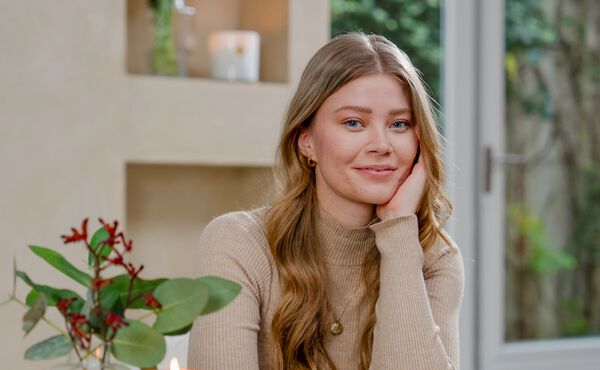
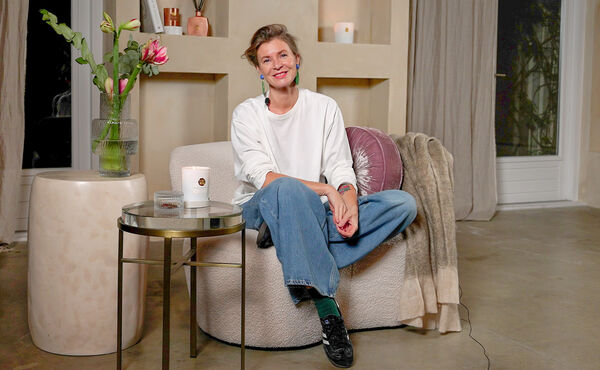
.jpg?sw=600&sh=370&sm=fit&cx=105&cy=0&cw=876&ch=540&sfrm=jpg)
